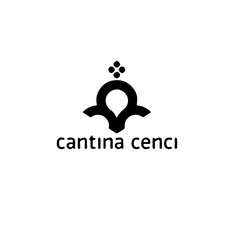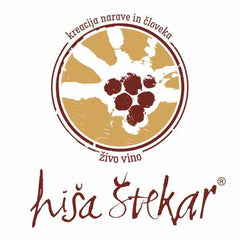86 products
- Orange Wine
- Chenin Blanc, Macabeo
- Natural, Vegan-Friendly
- Dry
- Medium Bodied
- 750ml
- 12% alc./vol
About the Winery
Celler Escoda-Sanahuja

Joan Ramón Escoda founded Celler Escoda Sanahuja in 1999 along with his wife Mari Carmen in Conca del Barbera, Catalonia. Since then, they have been disrupting the wine industry both in their home-country and internationally.
Celler Escoda Sanahuja was one of the first wineries that, back in 2005 stopped adding sulphites to their wines. Joan Ramon has always been a radical winemaker and a grass-roots innovator. His wild enthusiasm has been fuel for the natural winemaking scene, and has also led him to, spontaneously, create the 'Brutal' movement popular in natural wine circles. These are highly individual wines reflecting their origins and their innovative winemaker.
- Orange Wine
- Chenin Blanc
- Natural, Vegan-Friendly
- Dry
- Medium Bodied
- 750ml
- 13% alc./vol
About the Winery
Celler Escoda-Sanahuja

Joan Ramón Escoda founded Celler Escoda Sanahuja in 1999 along with his wife Mari Carmen in Conca del Barbera, Catalonia. Since then, they have been disrupting the wine industry both in their home-country and internationally.
Celler Escoda Sanahuja was one of the first wineries that, back in 2005 stopped adding sulphites to their wines. Joan Ramon has always been a radical winemaker and a grass-roots innovator. His wild enthusiasm has been fuel for the natural winemaking scene, and has also led him to, spontaneously, create the 'Brutal' movement popular in natural wine circles. These are highly individual wines reflecting their origins and their innovative winemaker.
- Orange Wine, White Wine
- Albariño, Chardonnay, Grechetto, Ribolla Gialla
- Organic, Sustainable
- Dry
- 750ml
About the Winery
Cantina Cenci

The Cenci Family has been dedicated to viticulture for over four generations, continuing to cultivate the vine with deep respect for the traditions and unique characteristics of the land once owned by the Olivetan monks. In the early 1950s, Mario—an enlightened and forward-thinking agricultural expert, and grandfather of Giovanni—selected clones of Grechetto, Sangiovese, and Malvasia from vines once cultivated by the Olivetan monks and traditionally grown intertwined with mulberry trees. He planted the first vineyards of the estate, and the wines made from those grapes were of such outstanding quality that he secured a long-term contract to supply Grechetto and Sangiovese in traditional flasks to the restaurant of a prestigious hotel in Perugia.
In 2012, following two years of renovation of the farmhouse, the new winery was inaugurated under the guidance of Mario Cenci, architect and brother of Giovanni. Thanks to cutting-edge equipment and winemaking techniques—combined with deep respect for tradition and the passionate leadership of Giovanni Cenci (viticulturist, enologist, food biotechnologist, and sommelier)—Cantina Cenci today produces wines appreciated by a niche audience of expert consumers.
The perfect balance between tradition and innovation has shaped a strong and distinctive brand identity.
Peninsula Vinicultores

Península Vinicultores was founded by two Masters of Wine: Andreas Kubach MW, leads production and Sam Harrop MW directs viticulture. Andreas, raised in Brazil and Spain by German parents, and Sam, a native New Zealander, bring a new-wave, international perspective to the Spanish wine landscape. Andreas believes that in the past century, and notably post-industrialization, Spanish producers have prioritized wines of style, focusing on winemaking and aging, rather than wines of place. This creates what he calls a “ceiling of interest” for terroir. Inspired to change this narrative, he is focusing on small, old-vine plots all over Spain that were either formerly abandoned or are at risk of being ripped out for to plant more lucrative cash crops. The wines also champion local, indigenous varieties traditional to their respective regions and best express site.
Štekar

The Štekar family has been growing grapes in Goriska Brda since 1985. With 6 acres of vines planted in the stunning hills of western Slovenia, along with cherry orchards, Jure Štekar has committed to make wine the way his grandfather Emil taught his father: respecting tradition and avoiding invasive technologies.
Certified organic since 2006, Jure likes to play with long macerations, spontaneous fermentations and tiny SO2 amounts. His goal is to produce genuine wines that tell the story of his land and family.
- Red Wine
- Carignan
- Sustainable
- Dry
- Full Bodied
- 750ml
- 14.8% alc./vol
About the Winery
Bodegas Puiggròs

Since 1843, the Puiggros family has been producing wines from their own vines in the Odena region of Catalunya for the family and close friends. Over generations they had come to realize that their vineyards and techniques were something worth sharing with the world. A sincere dedication to the terroir in their zone and the indigenous varieties that grow there, allows them to constantly discover ways to unlock all of the magic that lies within their land.
Starting with conscious and clean farming in the vineyard, they hand-harvest only the best fruit for their production, and ferment each vineyard separately in varying vessels to accentuate what the vines have to show; some in stainless steel, and many in clay amphora of differing sizes. All the while seeing very little sulfur use (if any) until bottling. Puiggros is pushing the quality of northeastern Spain's wines forward, and doing so in a clean and unique way.
Press Reviews
WineAlign
94 points (2021) - David Lawrason
This is a quite lovely, refined and intriguing Priorat - not as 'heavy' and powerful as some but so nicely expressing the carinyena (carignan) grape. Expect lifted aromas of pomegranate/raspberry with florals, fresh herbs, earth and mineral notes all finely integrated. It is medium-full bodied, lively and almost juicy with carignan's natural energy at work. Tannins are dry and dusty but not green. The length is excellent to outstanding. Will age another ten years but approachable now. Tasted May 2025
93 points (2021) - Michael Godel
The work of Bodegas Puiggrós happens in Catalunya and also here in Priorat where the soils are predominantly slate, known locally as “llicorella,” and the significance on the wines, inclusive of this varietal carinyena should not be overlooked. Or taken for granted because the tightly wound, focused and intensity of ultra specific mineral feels are what drive the regional machine. A serious and giving wine from a promising vintage yet here in its infancy and surely structured to be three years away from optimum potential. Drink 2027-2032. Tasted May 2025.
93 points (2021) - John Szabo, MS
This is the first vintage of this wine from Priorat produced by Bodegas Puiggròs, made of pure carinyena (carignan) form the region's steep, slate vineyards, and aged in amphora I'm led to believe, though no details can be found on the winery website. It certainly smells like a terra cotta-aged wine with its wet concrete and clay aromas, alongside lavender and rosemary, wildly resinous; fruit is very much a side show in this exotic and original example. It enters fluidly and sleekly before dusty tannins kick up; acids are balanced. It's quite tight and linear overall despite 15% alcohol declared, a far cry from the broad, base note-heavy style more typical of the region. It's an utterly new paradigm for Priorat, at least in my experience - I'd like to spend more time with it to see how the story unfolds, and watch it over several years in the cellar. I keep coming back for more. Tasted May 2025.
91 points (2021) - Sara d'Amato
This carignan-based Priorat is full-bodied and warm but well-crafted with an undercurrent of minerality and lightly salty freshness. Showing some evolution in colour and fruit with ample natural spice and hints of iron. Drinking very well now with good depth of flavour and significant length. Tasted May 2025.





























